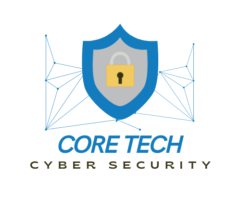When it comes to network security, choosing the right solution can make a significant difference in protecting your organization from cyber threats. Sophos and Check Point are two leading names in the network security arena, each offering a range of features and benefits. In this comparison, we’ll explore how Sophos and Check Point stack up against each other in terms of network protection.
1. Overview
Sophos and Check Point both offer comprehensive network security solutions, but they have distinct approaches and strengths.
Sophos
- Sophos provides a unified threat management (UTM) approach with solutions like Sophos XG Firewall and Sophos XGS Series. It focuses on integrating multiple security features into a single platform for ease of management and enhanced protection.
Check Point
- Check Point is known for its advanced threat prevention and management capabilities, including its Next-Generation Firewall (NGFW) and the Security Gateway appliances. It offers a wide range of security features and is renowned for its robustness and scalability.
2. Key Features Comparison
Sophos
1. Unified Threat Management (UTM)
- All-in-One Solution: Combines firewall protection, intrusion prevention, web filtering, email protection, and more into a single platform.
- Sophos Central Management: Centralized management console for monitoring and controlling all security features from a single interface.
2. Advanced Threat Protection
- Synchronized Security: Integrates endpoint and network security to enhance threat detection and response.
- Threat Intelligence: Uses global threat intelligence to identify and respond to emerging threats quickly.
3. User-Friendly Interface
- Ease of Use: Intuitive interface that simplifies configuration and management.
- Automation: Automated policies and responses to common security threats.
4. Performance and Scalability
- High Performance: Designed to handle high traffic volumes without compromising performance.
- Scalable Solutions: Suitable for various organization sizes, from small businesses to large enterprises.
Check Point
1. Next-Generation Firewall (NGFW)
- Advanced Threat Prevention: Features include intrusion prevention, antivirus, anti-bot, and URL filtering.
- Granular Policy Controls: Detailed policy configuration options for fine-tuned security management.
2. Threat Intelligence and Research
- ThreatCloud Intelligence: Uses Check Point’s ThreatCloud to provide real-time threat intelligence and protect against known and unknown threats.
- Research and Updates: Regular updates based on the latest threat research to stay ahead of evolving threats.
3. Scalability and Performance
- High Scalability: Designed for large-scale deployments with high throughput and minimal latency.
- High Availability: Features like load balancing and failover for continuous protection and uptime.
4. Centralized Management
- SmartDashboard: Comprehensive management console for managing security policies, monitoring events, and generating reports.
- Multi-Domain Management: Allows management of multiple security domains from a single interface.
3. Pros and Cons
Sophos
Pros:
- Integrated Solution: Unified platform combining multiple security features.
- User-Friendly: Intuitive interface and centralized management.
- Synchronized Security: Enhanced protection through integration with endpoint solutions.
Cons:
- Feature Overlap: Some features may overlap, which can be complex for users who need more granular control.
- Limited Customization: May not offer the same level of granular configuration options as some competitors.
Check Point
Pros:
- Advanced Threat Prevention: Comprehensive threat prevention capabilities.
- Granular Control: Detailed policy management and configuration options.
- Scalability: Suitable for large enterprises with high-performance needs.
Cons:
- Complexity: Can be more complex to configure and manage, especially for smaller organizations.
- Cost: Generally higher pricing, which may not be suitable for smaller budgets.
4. Performance and Reliability
Sophos
- Performance: Known for high performance with minimal impact on network speeds, even when handling extensive traffic.
- Reliability: Offers robust protection with regular updates and reliable support.
Check Point
- Performance: High-performance appliances designed to handle large volumes of traffic with minimal latency.
- Reliability: Industry-leading reliability with a strong track record in protecting against advanced threats.
5. Cost and Licensing
Sophos
- Pricing: Generally offers competitive pricing with a focus on providing value through integrated features.
- Licensing: Flexible licensing options with packages that cater to various needs, including small to medium-sized businesses.
Check Point
- Pricing: Higher cost due to advanced features and scalability options.
- Licensing: Licensing can be complex, with options for various modules and services that may affect the overall cost.
6. Support and Customer Service
Sophos
- Support: Offers various support options, including online resources, community forums, and direct customer support.
- Training and Resources: Provides training materials and resources to help users get the most out of their products.
Check Point
- Support: Comprehensive support services with options for premium support packages.
- Training and Certification: Offers extensive training and certification programs to help users and administrators get up to speed.
Conclusion: Which is Better for Your Organization?
Both Sophos and Check Point offer robust network protection solutions with their own strengths. Sophos is ideal for organizations looking for an integrated, user-friendly solution with synchronized security features. Check Point, on the other hand, is suited for larger enterprises or organizations requiring advanced threat prevention and granular control with high scalability.
Choose Sophos if you prefer a unified, easy-to-manage platform that integrates seamlessly with endpoint security.
Opt for Check Point if you need advanced threat prevention capabilities, high performance, and extensive scalability for large or complex environments.
